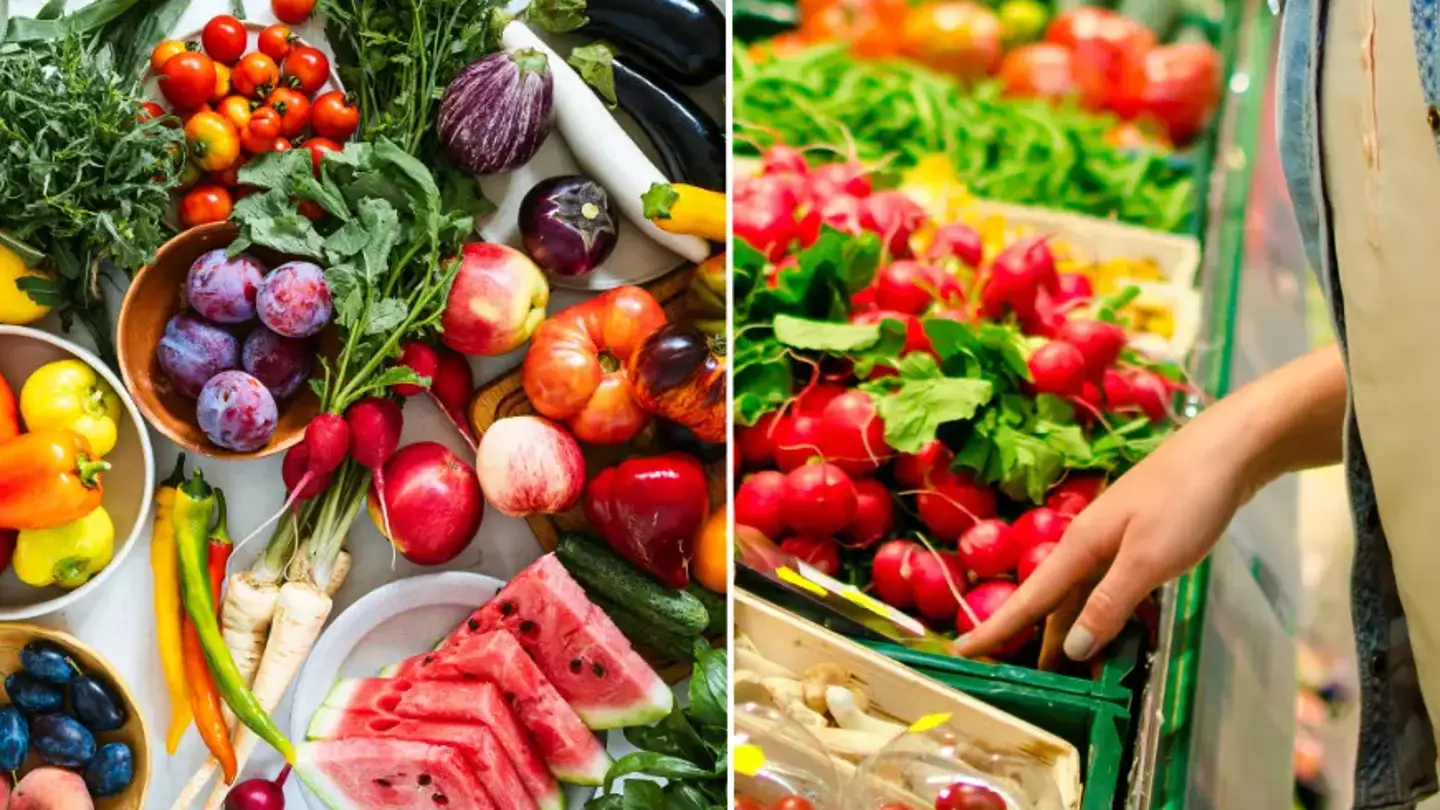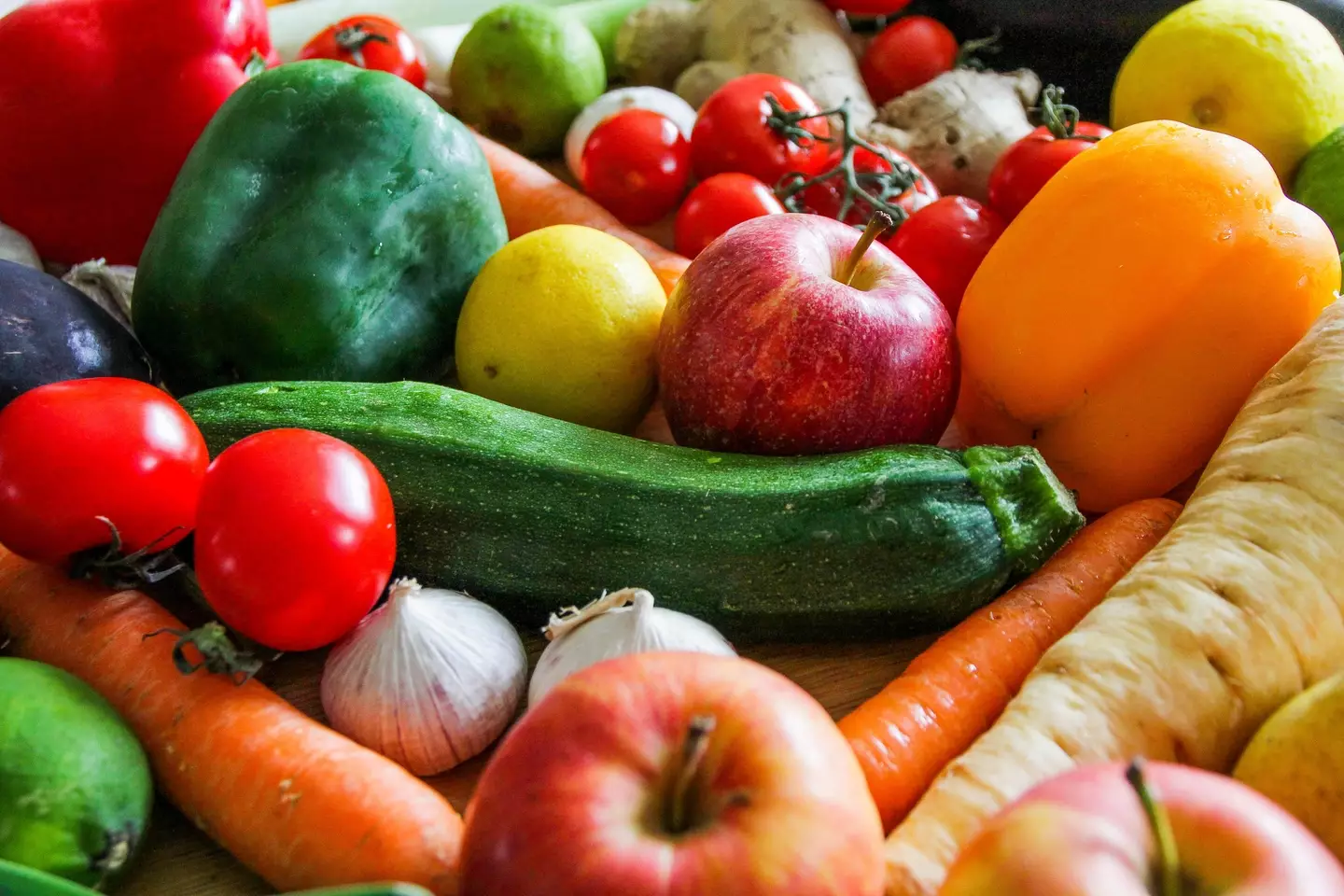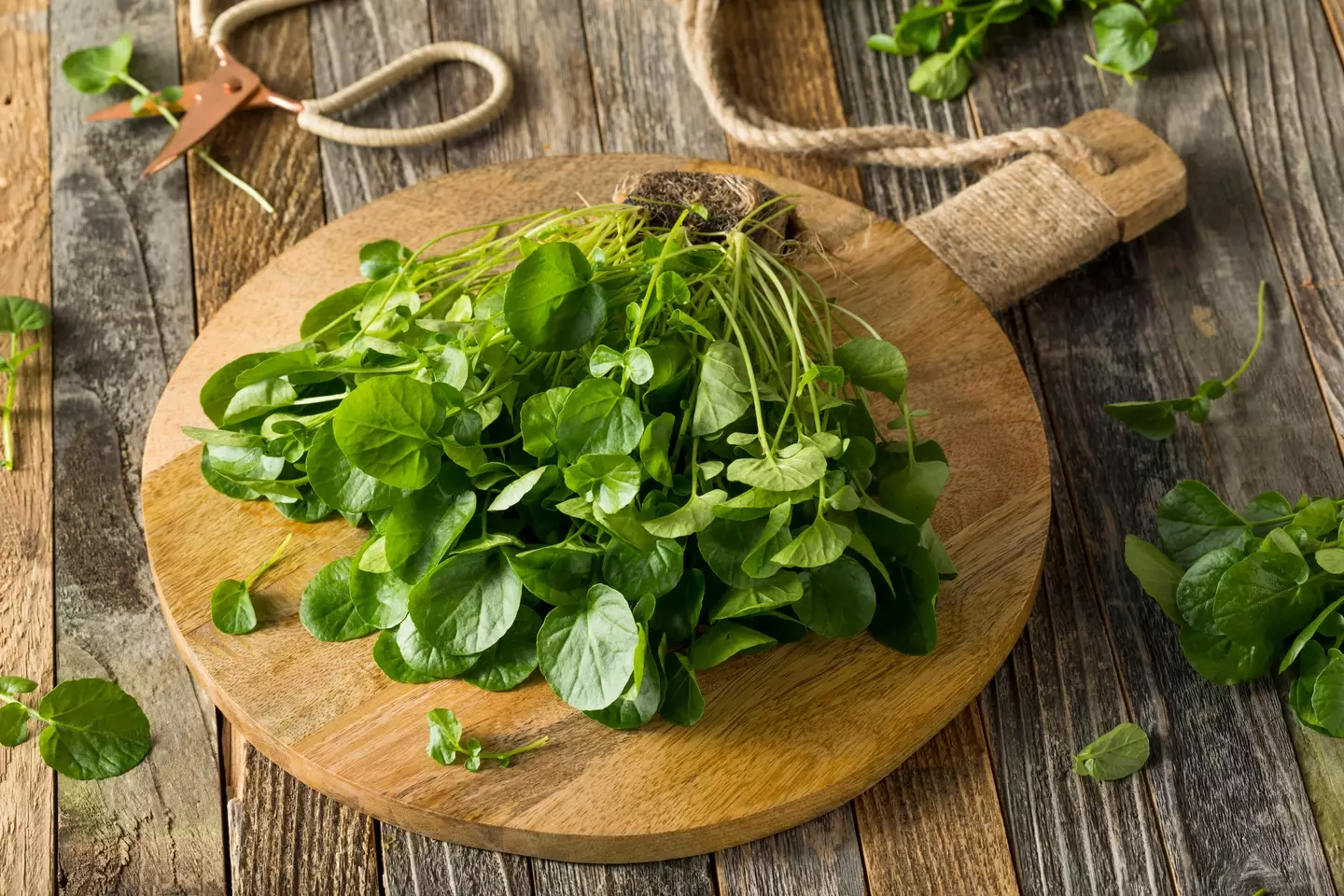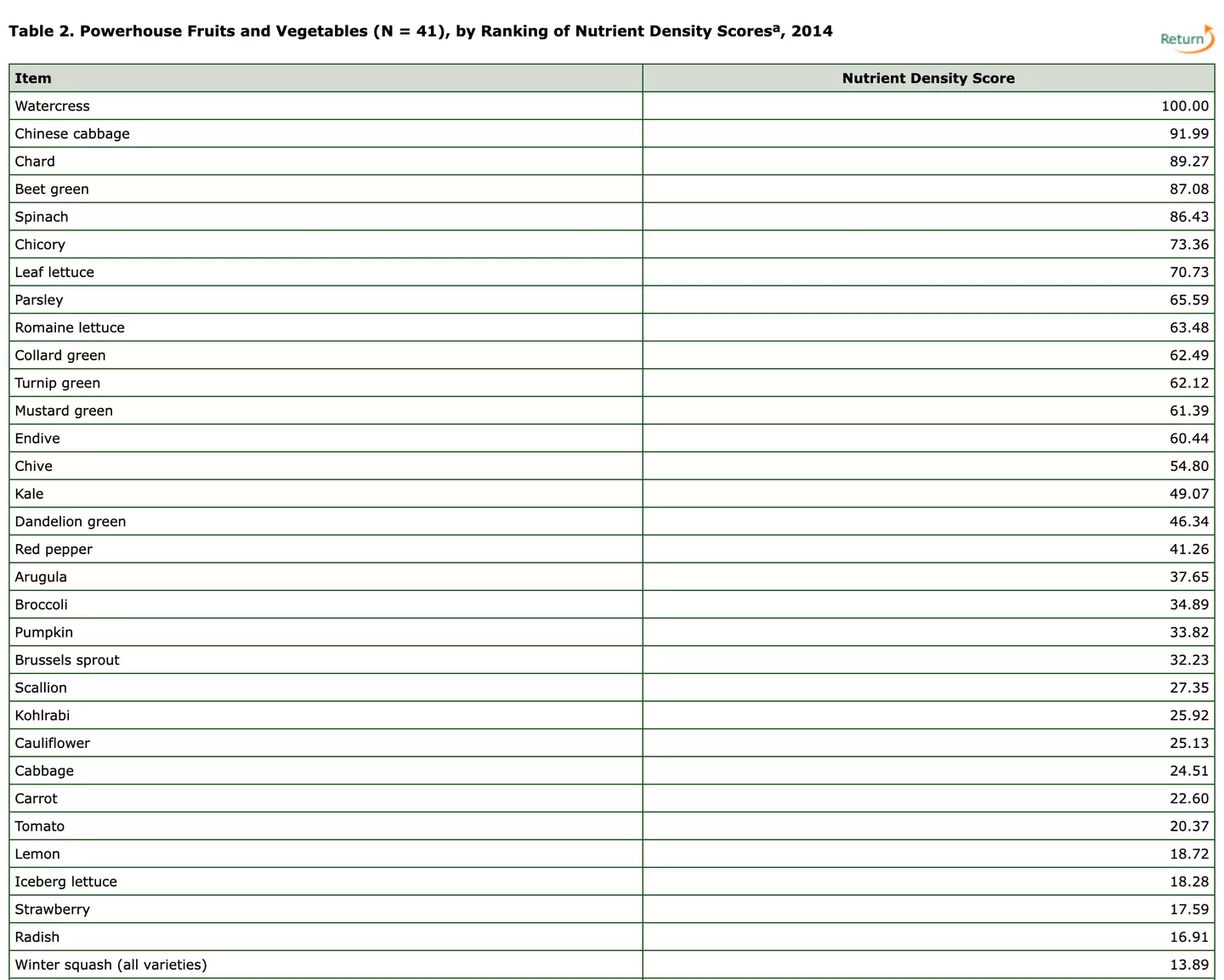
The healthiest vegetable has been revealed and if you've not eaten this for years, you're definitely not the only one.
Often found as a garnish to soups and salads, we reckon you'll struggle to guess this veggie as it's a bit of an underdog.
In the Center for Disease Control and Prevention's (CDC) ranking of the most nutritious vegetables, one in particular had a perfect score.

Advert
It's not carrots, broccoli, peppers or even sprouts...
Any guesses?
Well, the most nutrient-dense vegetable is actually watercress.
According to Medical News Today, watercress has recently upped its status as a bit of a superfood.
Advert
The dark, leafy green grows in water and is rich in vitamins and minerals.
"Watercress is an ancient green that may have been a staple in the diet of Roman soldiers. It is also a member of the cruciferous family, alongside kale, broccoli, arugula, and Brussels sprouts," MNT explains.
"Its newfound popularity is partly due now to a growing awareness of its dense nutritional content."

Advert
Also on the list was Chinese cabbage, with a score of 91.99, chard with a score of 89.27 and beet greens with 87.08.
All the top veggies are cruciferous vegetables packed with nutrients including potassium, fibre, protein, calcium and iron.
Watercress specifically is one of the most nutrient-dense veggies out there. But why is it such a superfood?
Well, nutritionist Serena Poon told the New York Post: “Watercress may be tiny, but it’s one of the most nutrient-dense foods you can find.
Advert
“Plus, since it’s low in calories, you get all these benefits without adding much to your daily caloric intake.
“Additionally, the nitrates in watercress are known to lower blood pressure, further protecting your cardiovascular system.
“Adding watercress to your meals could be a simple yet powerful way to give your heart some extra support.”

Advert
Veggies like watercress can also help reduce the risk of chronic illness, with Poon adding: “Watercress contains powerful phytochemicals, including glucosinolates, which have been shown to inhibit cancer cell growth.
“When you chew watercress, these glucosinolates are converted into isothiocyanates, compounds that have been studied for their anti-cancer properties.”
And the veg can be hugely beneficial for your skin, too, containing vitamin C, beta-carotene and lutein which supports the skin's natural glow and elasticity.
“Vitamin C, in particular, is essential for collagen production, which helps maintain skin firmness and can reduce the appearance of fine lines,” said Poon.
We'll have to start adding this to our meals ASAP.
Topics: Food and Drink, Health, Beauty